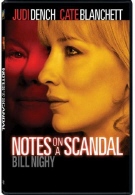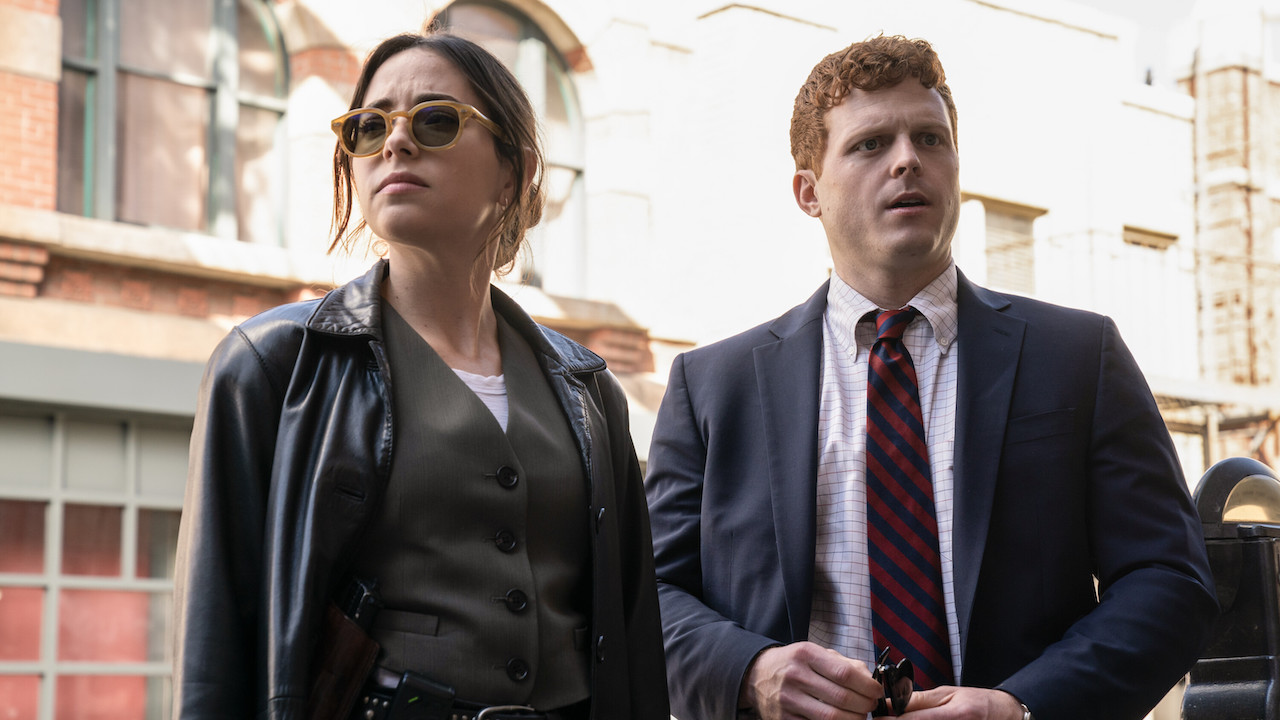Another year, another Oscar nomination for Judi Dench. In the last nine years, she has pulled down six nominations and one win (for Shakespeare in Love.) Her latest movie, Notes on a Scandal, brought her a well-deserved nomination for her role as a manipulative teacher. Teachers having sex with their students is a pretty delicate subject, especially considering the seeming deluge of stories in the last few years. But in Notes on a Scandal, screenwriter Patrick Marber, working from a novel by Zoë Heller, lets that scandal take a backseat to its effect on a relationship between two teachers. Barbara Covett (Judi Dench) documents, in meticulously kept journals, her thoughts and actions related to new art teacher Sheba Hart (Cate Blanchett) and, later, her affair with a 15 year old student, Steven Connolly (Andrew Simpson.) When the affair is made public, Sheba turns to Barbara for support unaware that she has been manipulating events for her own purposes.
Dench’s Barbara is a perfectly realized character. A lifetime of loneliness (she is the stereotypical cat-lady) has made her so desperate for connection that she doesn’t recognize her own obsessive behavior as unusual. That obsession, mixed with loneliness and a genuine dislike for most people, make her dangerous to anyone who makes the mistake of letting her get to close. It’s a masterful performance.
It’s not the only one in the movie. There is something that takes the somewhat pedestrian subject matter (lonely obsessive character stalks attractive character) and gives it more heft and interest. Blanchett walks a tightrope. She’s a likeable person who has done a despicable thing (sleeping with a student) but remains sympathetic. The viewer almost calls out to her to warn her about Barbara’s creepy behavior.
Bill Nighy, as Sheba’s older husband, and Andrew Simpson, as her teenage lover, also strike the right notes. Simpson seems to know just what to say to get Sheba to cross the line (he’s definitely the pursuer) and Nighy is terrific, especially after the affair comes to light. But it’s really Dench and Blanchett that make the movie a psychological thriller to watch. The producers do what they can to pump a somewhat small amount of content into looking like quite a few extras, but be warned, there isn’t a whole lot here. The extras listed on the case are relatively short and tread on the same ground over and over again. They do give a little insight into character motivation, comparisons between the book and the movie, and the general goals of the filmmakers, but at first glance it will look like more than it is.
There is a commentary by Director Richard Eyre. He has an informative but slightly boring way of discussing the film. Rather than speak in general about the production, actors, or issues, he just comments specifically on what is going on at that moment on screen. At the start of almost every scene he talks about where it was filmed, the reason for the scene, and other information and then at the beginning of the next scene, he starts again. He’s not a very engaging speaker, but he’s generally on the point in the scene, which is more than can be said for some commentaries.
Once you get past the commentary, there are two featurettes that basically say the same thing. One, “The Story of Two Obsessions,” is about 12 minutes and the other, “Behind the Scenes,” is around half that long. That’s really the only difference between the two. While the exact same comments aren’t made in each, they are so similar it’s really redundant to have the second. Even less beneficial is “In Character with Cate Blanchett” that aired on the Fox Movie Channel. It’s so short that it must have been almost a brief bumper on the Channel and, after watching the featurettes, it adds nothing.
There are also some “webisodes.” This seems like an odd choice for something like a webisode marketing campaign, but there obviously was one. There are five altogether, although the last one, which is a conversation between Cate Blanchett and Bill Nighy, is broken up further into five segments. Again, the material is very similar to what is presented in the featurettes, so it doesn’t add much to understanding or appreciating the movie. Additionally, Bil Nighy’s microphone isn't working for one of the webisodes, making him impossible to hear.
That’s all there is other than the theatrical trailer. There are no deleted scenes, gag reels, and really any actual behind the scenes material. The featurette labeled “Behind the Scenes” is mostly interviews rather than any footage of the filmmaking process. The best way to learn about how the film was made is to listen to the commentary.
The quality of the movie and the performances, rather than the extras is what makes this disc a good deal. The transfer is satisfactory and if you’re a huge Cate Blanchett or Judi Dench fan, you’ll see quite a few interviews. You may end up watching the movie more than once, but one quick trip through the extras is more than enough.
NCIS: Origins' Showrunner Revealed 'The Real Highlight' Of Learning Season 2 Was Happening, And I Discovered They Pulled Off An Amazing Achievement In The Process
Why One The Summer I Turned Pretty Fan Thinks A Parallel Between The Latest Poster And An Audrey Hepburn Movie Spoils The End
I Talked To The Wedding Banquet Director About My Favorite Scene, And Turns Out Youn Yuh-Jung Actually Had A Key Note That Made It Better











